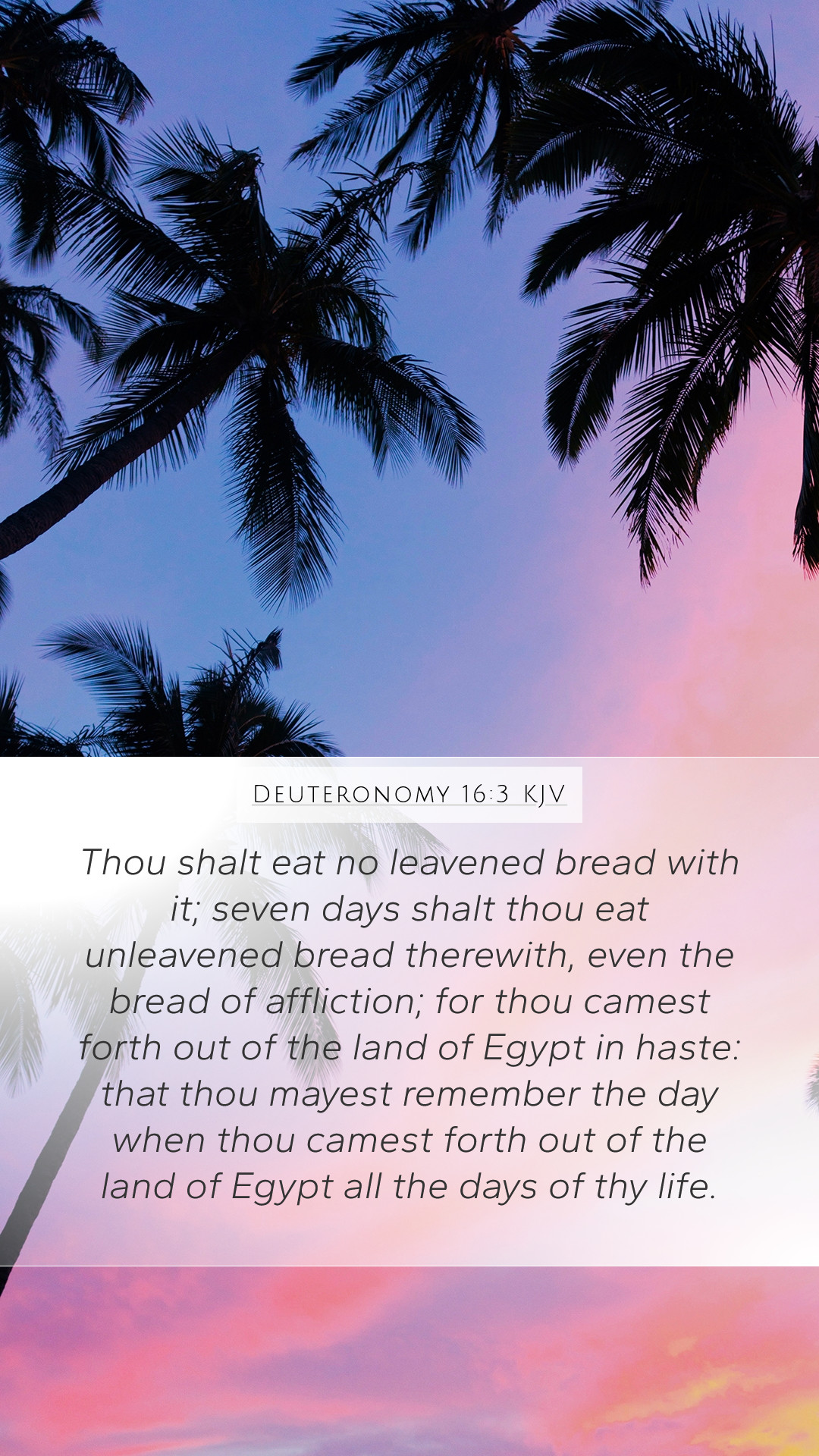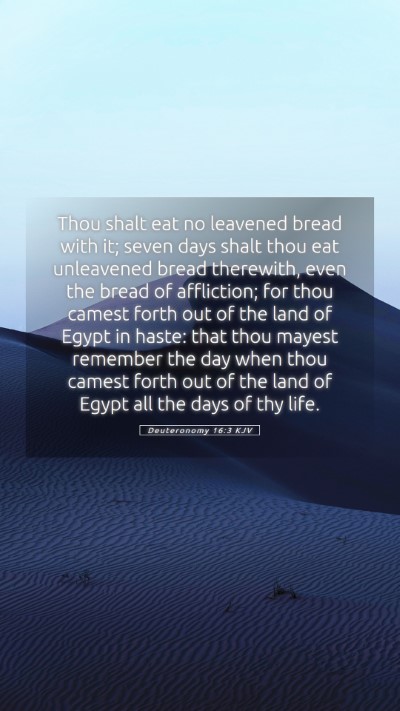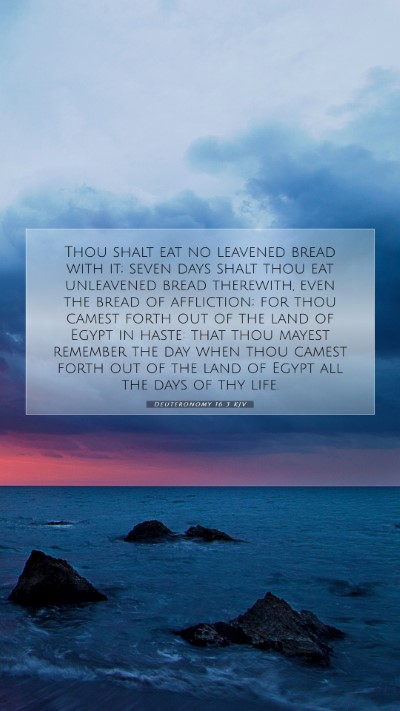Understanding Deuteronomy 16:3: Biblical Exegesis and Commentary
Verse: Deuteronomy 16:3 - "You shall eat no leavened bread with it; seven days you shall eat unleavened bread with it, the bread of affliction—for you came out of the land of Egypt in haste—that all the days of your life you may remember the day when you came out of the land of Egypt."
Overview
In this verse, God commands the Israelites to observe the feast of Passover by eating unleavened bread for seven days. This act serves as a reminder of their hasty departure from Egypt, symbolizing both their affliction and God's deliverance.
Meaning and Interpretation
This verse carries profound meaning and significance, especially when combined with insights from renowned commentators like Matthew Henry, Albert Barnes, and Adam Clarke. Below is a synthesis of their interpretations:
-
Historical Context:
Matthew Henry emphasizes the importance of remembering the exodus from Egypt as a foundational event in the history of Israel. The unleavened bread symbolizes purity and the urgency of God's deliverance.
-
Symbolism of Unleavened Bread:
Albert Barnes highlights that unleavened bread signifies a state of humility and the shedding of sin. Leaven, often used as a metaphor for sin, is to be avoided during this time, promoting a focus on spiritual cleanliness.
-
Commemoration as a Teaching Tool:
Adam Clarke notes that the observance of unleavened bread serves as a teaching moment for future generations. It reiterates the narrative of deliverance, instilling a sense of identity and gratitude among the Israelites.
-
The Bread of Affliction:
Henry remarks that calling it the "bread of affliction" is a reminder of the hardships endured by the Israelites in Egypt. This reinforces the need for humility and reliance on God's mercy.
-
Spiritual Application:
Barnes discusses how this commandment can be applied in the lives of believers today, encouraging them to remember their own deliverance from sin through Christ and live a life free from spiritual leaven.
Cross References
This verse can be further illuminated by referencing the following passages:
- Exodus 12:15 - Instructions about eating unleavened bread during Passover.
- Leviticus 23:6 - The festival of unleavened bread and its significance.
- 1 Corinthians 5:7 - Paul’s exhortation regarding leaven and purity in the church.
Practical Applications
Understanding Deuteronomy 16:3 involves reflecting on its practical implications for today’s believers:
- Personal Reflection: Believers are encouraged to examine their own lives for spiritual 'leaven'—sin—and seek to live in a manner that honors their deliverance through Christ.
- Community Remembrance: Just as the Israelites remembered together, modern believers should engage in communal remembrance of God's deliverance through worship and sacraments.
- Teaching Future Generations: This verse underscores the importance of teaching younger generations about God's faithfulness in their lives, ensuring that the legacy of faith is passed on.
Conclusion
Deuteronomy 16:3 is not just a historical command but a rich source of Bible verse explanations and Bible verse commentary. By engaging with the insights of traditional commentators, believers can gain a deeper Bible verse understanding that shapes their faith and lifestyle.
For those involved in Bible study groups or seeking online Bible study, this verse provides fertile ground for further exploration of its themes of memory, deliverance, and obedience.


